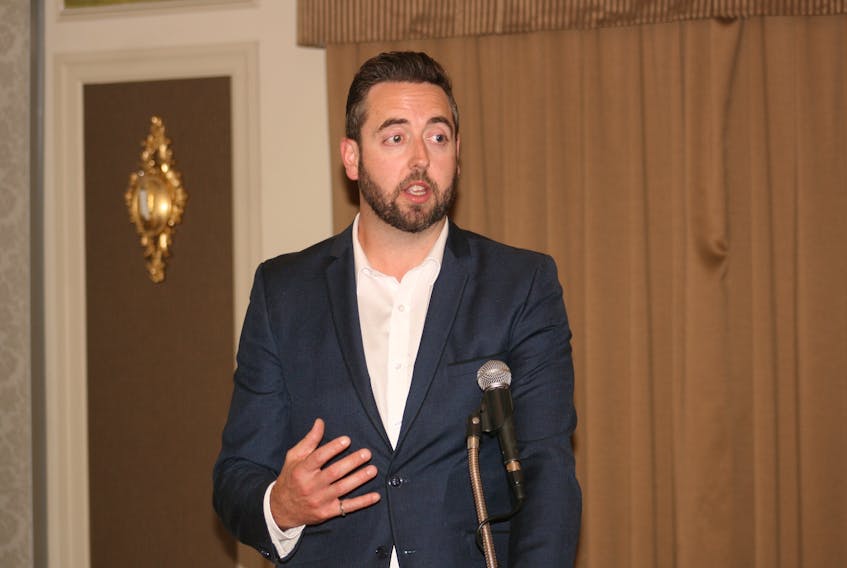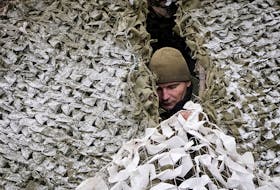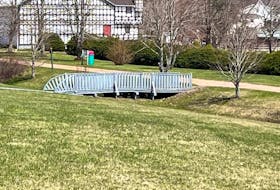MARYSTOWN, N.L.
NEWFOUNDLAND AND LABRADOR
CANADA
The government’s travelling discussion on the challenges and issues with the province’s criminal justice system was in Marystown Tuesday, Sept 18.
Justice Minister Andrew Parson told those gathered in the ballroom at the Marystown Hotel and Convention Center that the point of the meeting is to see, “what’s working well in our justice system, ‘cause there are many things working well, but also what are some of the things we are having challenges with, what to do differently.”
Some of the topics open for discussion were:
• What issues are causing challenges for the criminal justice system to work effectively and efficiently in this region?
• What challenges do you see need to be addressed?
• What solutions would you recommend to address these challenges?
• Who is responsible for addressing the issue?
Parsons spoke with The Southern Gazette before the event, which was closed to the media.
“This is something that we have been running now for a year and a half, this is the conclusion of our province-wide tour — we’ve done them in each region,” he explained.
“I have an opportunity in my role to speak to everybody within the system whether it’s probation, victims services, the judiciary, the RCMP — but I quickly realized that many people are not getting the chance to have that chat,” Parsons said. “So what we decided was that within each region it was so important to have everybody within the system come together and have a chat on what’s working within the system and what are some of the challenges that we have, and what are some of the things that we can do differently or do better.”
Parsons hopes the findings from the discussions held over the past year and a half will be compiled and made available to the public by Christmas. As well, the reports from the sessions held in Labrador, central and St. John’s are available online.
Parsons noted that through these discussions, they are finding there is some commonality to the issues facing the various regions of the province.
“One of the challenges that everybody faces is resources…but realizing that adding more resources is not easy, that’s a common complaint within any system whether its education, health care — we also want more.”
The minister said another common issue is the lack of alternative services. “Something where we need to do more on a concept called restorative justice,” he said. “Now we have a system that doesn’t always address the needs of the victim, so we’re working on that, and that’s an issue everywhere, whether you’re in Labrador or you’re down here in Burin.
“It’s an issue that I think effects all of us. It’s a concept — where are we finding a sense of balance, fairness, and justice for everybody, not just punishing the offender, but looking at the victim and what do they want”
Parsons said another issue that needs to be addressed is the root cause of why people are offending.
“One of the big ones is drug addiction,” he said. “So, we talk about putting these individuals in the courtroom (or) putting them in incarceration, is that benefiting actually anybody? Is there another way the we can achieve justice but maybe look at a different way to find that which takes into account why they are (incarcerated) in the first place?”
Parsons is a firm believer that incarceration is a necessary thing, “but we need to look more at rehabilitation and reintegration into society, because these individuals are going to get out, there are going to come back, they are our neighbours. So, we have to find a way to help they fix the issues that cause their situation in the first place.”









